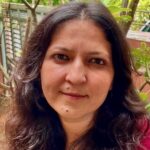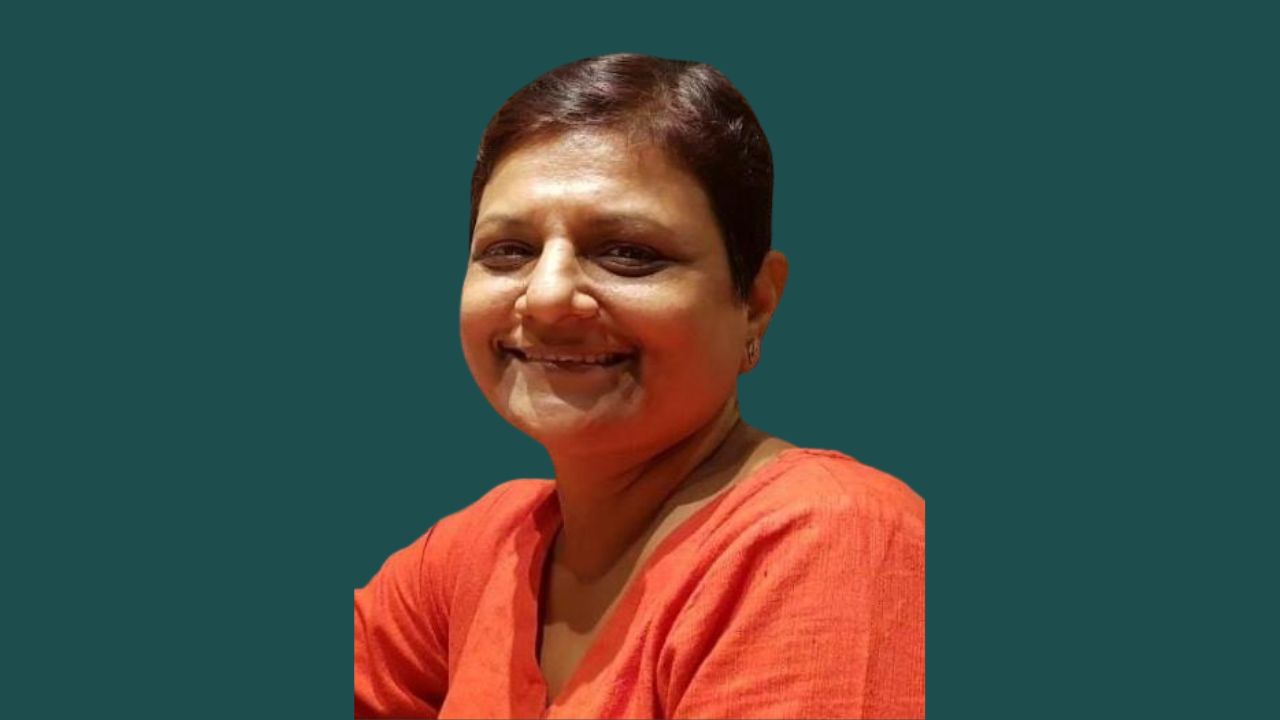Angela Hope-Murray MSc (Ayur), MA, BSc (Ost) D.O, HCPC reg Pod. is an Ayurvedic practitioner with a background in osteopathy, podiatry nutrition, spagyric medicine and marmapuncture (Ayurvedic acupuncture). She specialises in musculoskeletal conditions and nutrition but her passion and main area of interest is Ayurveda. She has had the privilege of studying with Dr Vasant Lad and Dr Rober Svoboda, and she tells the Center for Ayurveda Studies about her incredible journey and how this practice became her way of life.
Sophia: How did your spiritual journey begin and how did you find Ayurveda?
Angela: I think there's a point in time in everybody's life that you'll come across your destiny, and it happened to me when I went to live in America, because my husband was posted there, and I went with him. So I always knew I wanted to be in healthcare, and I'm a podiatrist. When I was in Boston, I decided to do a master's degree in nutrition and health counselling.That took me to the Lemuel Shattuck Hospital where I interned in the pain relief clinic. That was a really marvellous experience; working in a multidisciplinary clinic with complementary medicine. So we had osteopaths, we had acupuncturists and psychotherapists because there's always a huge mental dimension to people who are in chronic pain. Anyway, that was in 1979, so it's a long time ago. Fortunately for me, we had occasional lunchtime meetings in the hospital, and one day, this man walked in — his name was Dr Vasant Lad, and he gave a talk about health, and it was like lights just flashing. My whole body was saying, ‘Oh my God, this is real health — to be established in the self.’ Listening to Dr Lad talk about health, I knew I wanted to study and find out more about Ayurveda. This was also when I received initiation into the Advaita Vedanta tradition and I have been meditating every day since then. I think that is the bedrock to healing. So whatever state you're in, you must meditate.
I also met Dr Robert Svoboda, and he was the first Westerner to receive an Ayurveda degree. I had met him when I had just graduated and I truly feel that God has gifted me these meetings with two of the most important names in Ayurveda. They have done so much to bring India to the West and vice versa. At that time, there were no colleges of Ayurveda in London (the first college I think was established in 1995). But Dr Lad and Dr Svoboda would visit often and teach us and it was just 12 of us. So it all started there.
Sophia: What was it like training with stalwarts like Dr Vasant Lad and Robert Svoboda? You said they're the pillars of modern Ayurveda and revival. So what was that like?
Angela: It was tremendous. I knew that it was special and I knew about the purity of their teaching. Money was never an issue. Never. They never sold anything. I think it is only lately that money and business became involved with spiritual institutes. But at the beginning, nobody mentioned money or a fee. I have organised retreats with them in Spain, Turkey, France…and never once was money discussed. If we made any money by chance, then we gave that to the teachers but that was never the main criteria. These people did what they did with the deeper purpose of helping humanity.
Sophia: What does India mean to you?
Angela: Everything (laughs). The second I get off the plane, there’s a part of my inner being that feels completely at home — the aromas, the sounds, the colours…and the trees. I don’t know what it is about the trees in India. They have such unique arms. And the temples, I visited a lot of temples in the north and listening to the priests reciting Sanskrit put me in a dream-like state. When I visit these temples and stand there listening, it feels like 5,000 years ago. These traditions have been maintained for centuries and it's amazing to be in that energy — it’s like the air is grooved with those sounds. And also India is the land of Sanskrit to me. Everything carries sound and the universe was spoken into existence. There’s research on hypersonic sound that studied the effect of the sound trees make on the human psyche. It affects our dopamine and serotonin levels so going back to nature is also always a good idea…but bringing that back to sound, Sanskrit is healing in its vibration.
Sophia: What is it like to teach Ayurveda in the West which relies so much on allopathy?
Angela: You know, people don’t understand the depth of Ayurveda because they don’t know the philosophy attached to it. I feel that people who want to use Ayurveda must at least have a fundamental knowledge of Indian scriptures to understand the interconnectedness between mind, body and intellect, and how Ayurveda takes all into consideration. If people can appreciate that, you start to see Ayurveda as the way of life, a way of healing and it will work. This is one of the reasons I respect Dr Lad so much — he opened this entire universe to me and helped me understand the idea of the great overarching universal self. So he helped me get rid of my obstacle of Western knowledge (laughs).
Angela: What inspired you to write the books, Healing with Ayurveda, Ayurveda for Dummies and Outline of Musculoskeletal Medicine in Ayurveda?
Sophia: The first one was a small attempt to try and systematise and explain Ayurveda to the West. In the 80s, when I told people I practise Ayurveda, they would ask me if Ayurveda had something to do with Darth Vader (laughs). I would tell them they both came from the stars but just not the same kind of stars. So that was the first book I wrote just to simplify the Sanskrit terms for a Western audience and make the subject approachable. The second book I wrote was about musculoskeletal disorders of the lower limb and I’m actually looking for a publisher for that.
Sophia: What does it mean to lead an Ayurvedic life beyond food?
Angela: I think that it’s a great sadness that people have just picked out one aspect. It's almost like what we've been given in Ayurveda is a whole building and if you just pull one bit, the building collapses. You need to have all of the strands together. I mean, it’s not just about eating, is it? I think it's very difficult to really give a good Ayurvedic treatment if you're going to ignore all the other things that come with Ayurveda like dinacharya and ritucharya etc…
Sophia: What will be your advice to young students and practitioners of Ayurveda?
Angela: I think you need to find a good teacher. Not a westerner to be honest (laughs). You need to have a teacher who's grown up with Ayurveda in the kitchen and as a lifestyle — they're waking and sleeping on time, practising meditation…there are amazing vaidyas in india. Learn from the source.
For more information, visit Angela Hope Murray





